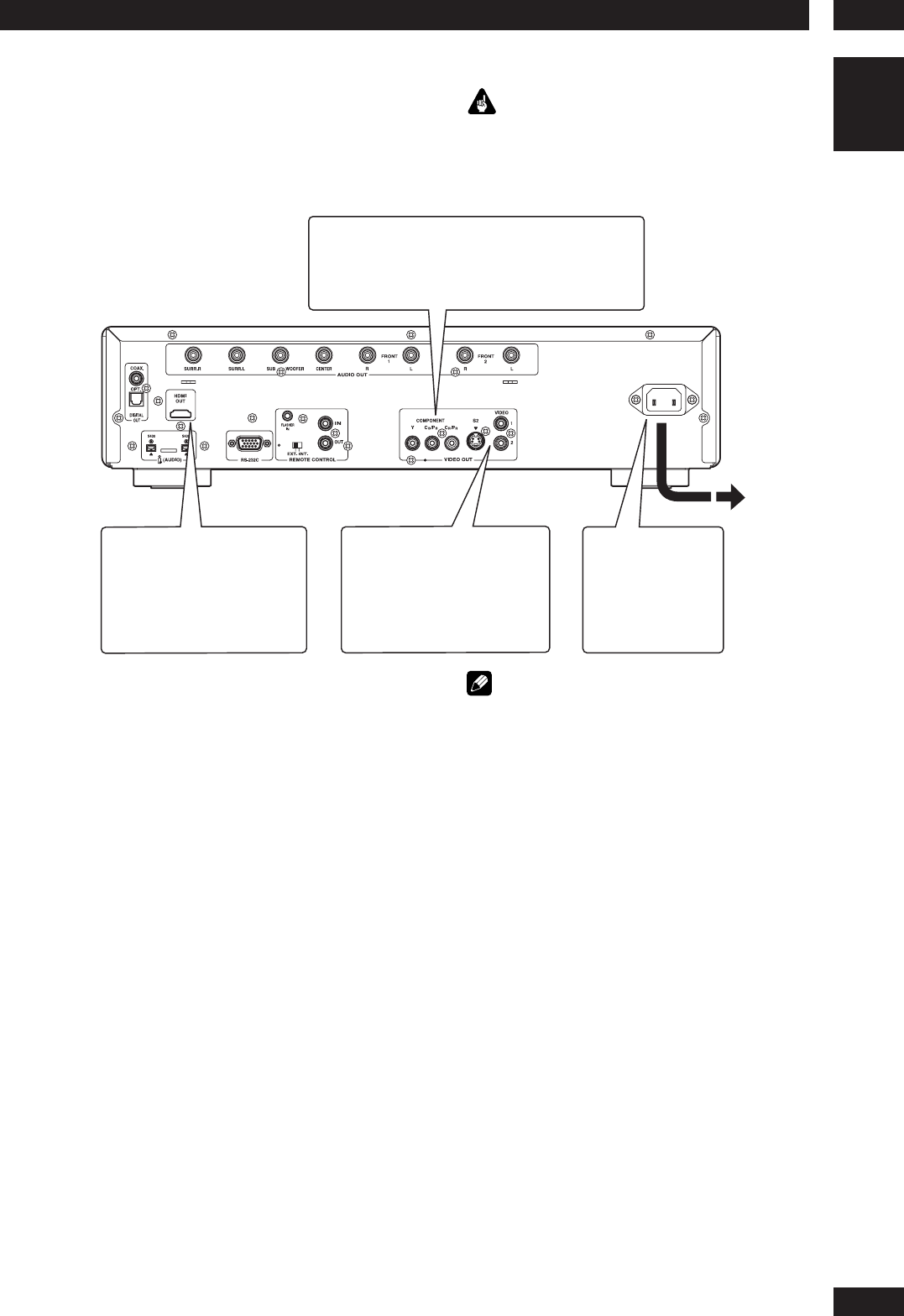
2Connecting Up
11
English
Home theater video connections
This player outputs video in a number of
different ways. Choose the one most suit-
able for your system using the guide below.
Connecting S-Video cables
S-Video cables will only plug in one way, so
make sure the plug is correctly lined up with
the jack before inserting. Be sure to fully
insert for a good connection.
S-Video or composite video?
S-Video should give a better picture, so if
you have an S-Video input, use it. S-Video
cables are available from any good audio/
visual dealer.
Connecting HDMI cables
With an HDMI cable, both uncompressed
video data and digital audio data (e.g.,
LPCM or bit stream data such as Dolby
Digital, DTS, MPEG data or DVD Audio Multi
channel) can be transmitted with just a
single connector.
By transmitting DVD image data directly as
digital data without it being first converted
into analog format, it becomes possible to
provide the very finest in image quality (see
page 52).
Important
Before making or changing any rear panel connec-
tions, make sure that all components are switched
off and unplugged from the wall outlet.
Note
• The HDMI output of this unit can be connected
to a DVI jack on a TV or other device using a
conversion adapter. In this case, it is necessary
to use a TV or display with an HDCP-compat-
ible DVI input. (see page 52)
• There may be no image output if connected to
a TV or display that is not compatible with the
above format.
•Refer to the instruction manual of the TV or
display to be connected to this unit for detailed
information regarding the HDMI terminal.
•When connecting a progressive input TV with
the component output of the player, select
Progressive in the Components Out setting
(see page 47).
1
3
2
If your TV has a component video input, we
recommend using it to connect directly to the
COMPONENT VIDEO OUT of this player. Use the
standard 3-jack component video ouput.
If a component input is not
available to you, connect this
player to your TV or AV
receiver using either the VIDEO
or S-VIDEO jacks.
Plug into a standard
AC wall outlet.
If your TV and projector have a
HDMI terminal for Video and
Audio Input, we recommend
using it to connect directly to
the HDMI out of this player.


















